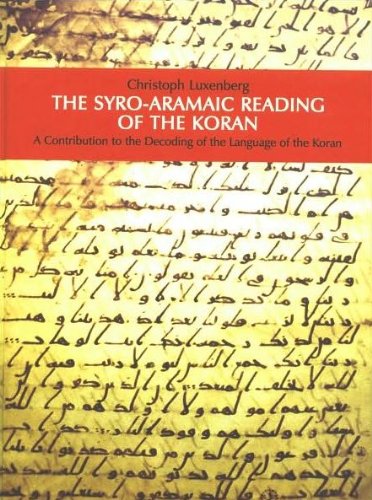

Most ebook files are in PDF format, so you can easily read them using various software such as Foxit Reader or directly on the Google Chrome browser.
Some ebook files are released by publishers in other formats such as .awz, .mobi, .epub, .fb2, etc. You may need to install specific software to read these formats on mobile/PC, such as Calibre.
Please read the tutorial at this link: https://ebookbell.com/faq
We offer FREE conversion to the popular formats you request; however, this may take some time. Therefore, right after payment, please email us, and we will try to provide the service as quickly as possible.
For some exceptional file formats or broken links (if any), please refrain from opening any disputes. Instead, email us first, and we will try to assist within a maximum of 6 hours.
EbookBell Team

5.0
88 reviews
ISBN 10: 3899300882
ISBN 13: 978-3899300888
Author: Christoph Luxenberg
Throughout its history the Koran has presented problems of interpretation. Some scholars estimate that at least a quarter of the text is obscure in meaning, not only for Western translators but even native Arabic speakers, who struggle with the archaic vocabulary that is no longer used in modern Arabic.
In this in-depth study of the language of the Koran, scholar Christoph Luxenberg dispels much of the mystery surrounding numerous hitherto unclear passages. The key, as Luxenberg shows exhaustively, is to understand that Aramaic--the language of most Middle Eastern Jews and Christians of the pre-Islamic era--had a pervasive influence on the development of the Arabic text of the Koran. For a thousand years preceding the advent of Islam, Aramaic (or Syriac as it was sometimes called) was the lingua franca of many parts of the Near East. It was the native language of the first Christian evangelists and the main liturgical language of the early Christian churches from Syria to Iran.
Based on this historical context and a profound knowledge of Semitic languages, Luxenberg clarifies many thorny textual puzzles. Perhaps his most interesting argument is that the passage often translated as referring to the "virgins" that are believed to greet the departed faithful in paradise was long ago misunderstood. In fact, knowledge of ancient Christian hymns in Aramaic suggests that the word in question refers to "grapes" that the departed will enjoy in a paradisiacal garden. Luxenberg discusses many other similar fascinating instances where Aramaic vocabulary and concepts influenced the text of the Koran
This highly erudite work makes a significant contribution to the study of the Koran and the history of Islamic origins.
Chapter1 : Introduction
Chapter 2: Content
Chapter 3: Conclusion
Chapter 4: Appendices
Chapter 5: Glossary
Chapter 6: References
Chapter 7: Index
christoph luxenberg the syro aramaic reading of the koran
borrow the syro aramaic reading of the koran
the syro-aramaic reading of the koran pdf
the syro aramaic reading of the koran türkçe
are aramaic and syriac the same